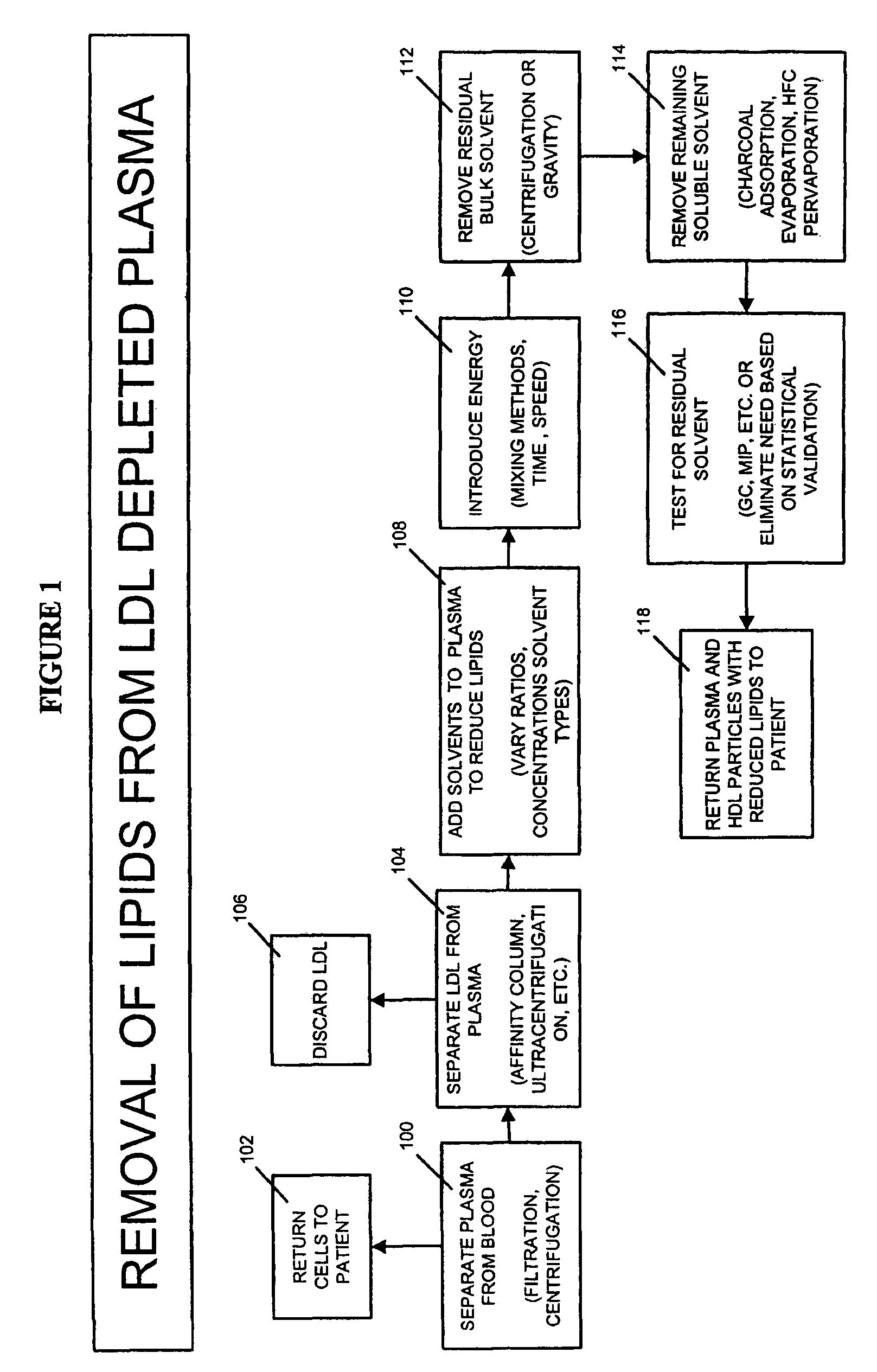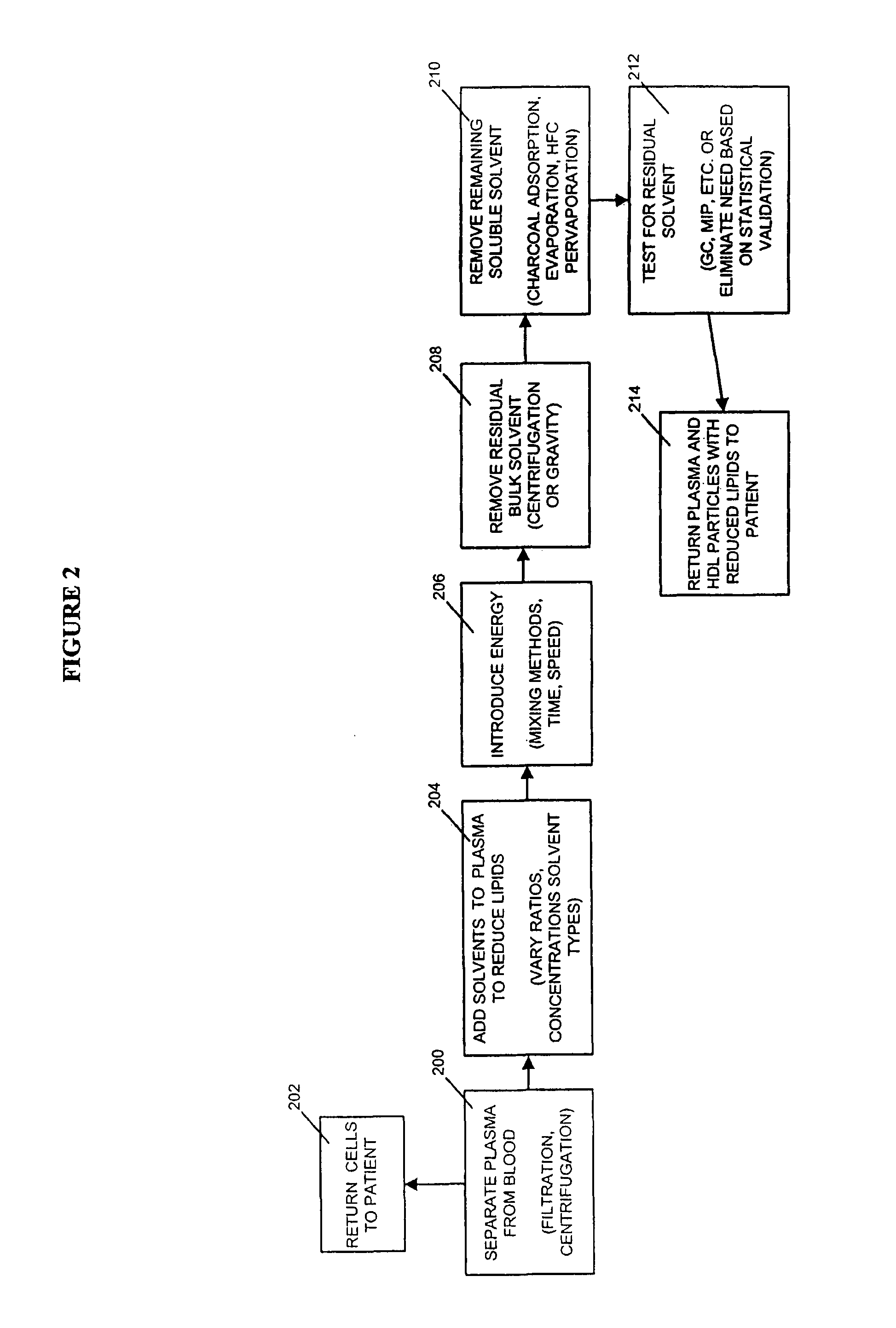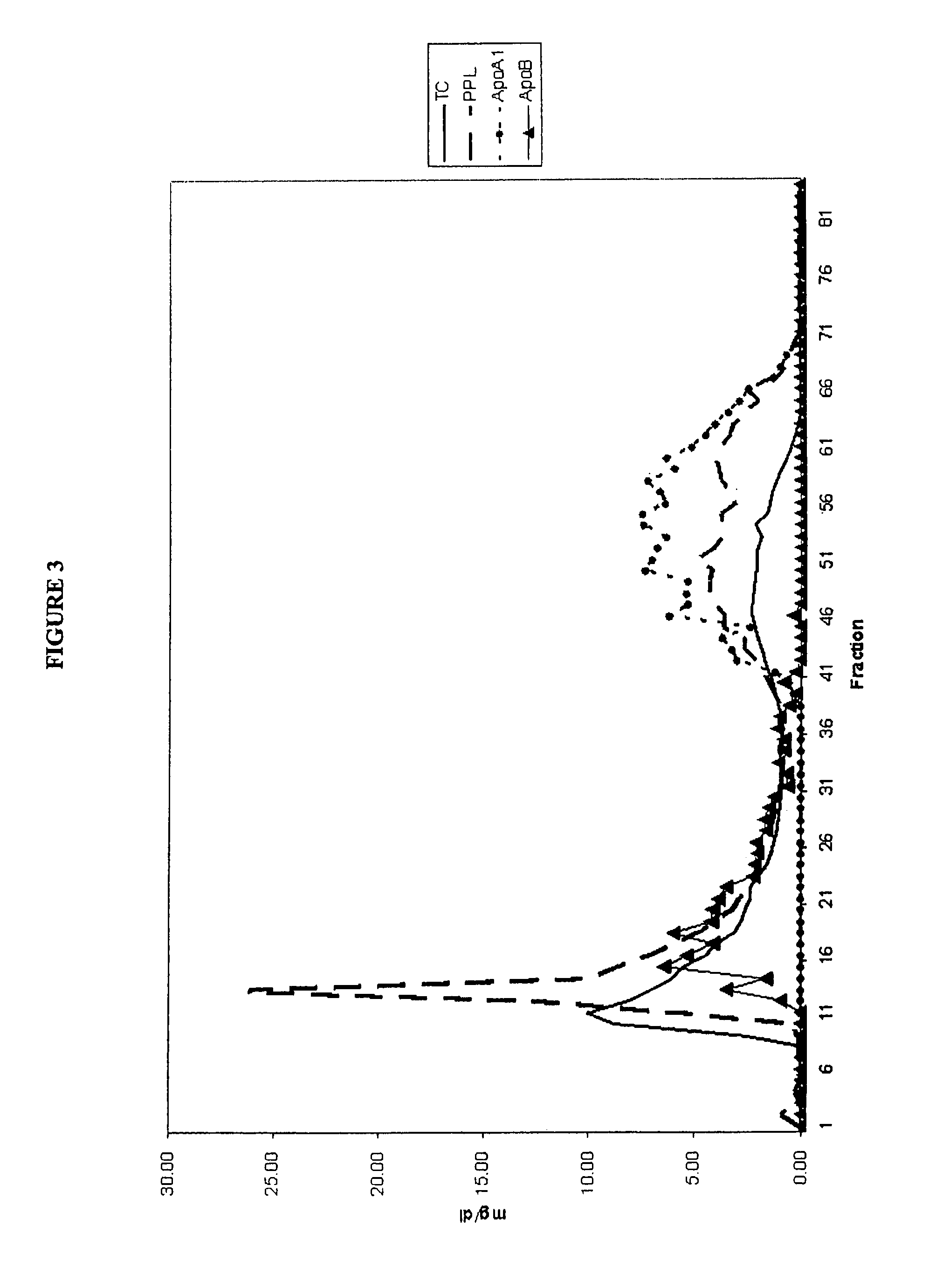Methods and apparatus for creating particle derivatives of HDL with reduced lipid content
a technology of hdl and particle derivatives, which is applied in the direction of peptide/protein ingredients, separation processes, and metabolic disorders, etc., can solve the problems of acute obstruction and ischemia of distal blood vessels, exposing fatty plaque deposits that may break away and embolize within the circulation, and enhancing cellular cholesterol efflux, so as to reduce lipid content and improve cellular cholesterol efflux , the effect of reducing the content of lipids
- Summary
- Abstract
- Description
- Claims
- Application Information
AI Technical Summary
Benefits of technology
Problems solved by technology
Method used
Image
Examples
example 1
Separation and Characterization of Total Cholesterol, Apolipoprotein A1 (Apo A-1), Apolipoprotein B (Apo B) and Phospholipids in Normal Plasma
[0167]A 25 ml pool of plasma was characterized in terms of total cholesterol, apolipoprotein A1 (Apo A-1), apolipoprotein B (Apo B) and phospholipids. An aliquot of 1 ml of the pooled plasma was loaded onto a Sephacryl S-300 26 / 60 (FPLC) column. An elution buffer of phosphate buffered saline containing 1 mM EDTA was applied to the column and eluted at 2 ml / min. About 96 fractions were collected, one every 43 seconds beginning 41 minutes after application of the plasma sample. Each fraction was characterized in terms of total cholesterol, Apo A-1, Apo B and phospholipids.
[0168]Apo B containing particles comprised of very low density lipoprotein (VLDL), intermediate density lipoprotein (IDL) and low density lipoprotein (LDL) particles eluted in fractions 10-40. Apo A-1 containing particles comprised of high density lipoprotein (HDL) particles el...
example 2
Selective Creation of Apo A-1-Associated HDL Particles with Reduced Cholesterol or with Reduced Cholesterol and Phospholipids Using DIPE
[0169]This selective plasma treatment method employs a ratio of 1:1 DIPE: plasma. The sample was vortexed for 15 seconds and then permitted to separate by gravity. Activated charcoal was used to remove residual DIPE after the process and several different hematological parameters were measured.
[0170]The delipidated sample was then applied to a column and treated as explained in Example 1. This method removed about 10% of total cholesterol, 12% of Apo B, 17% of Apo A-1 and about 11% of phospholipids.
[0171]A comparison of the elution of the delipidated sample with the elution of normal, non-delipidated plasma is presented in FIGS. 4 and 5. The results show a shift to the right of the Apo A-1-associated HDL particles, indicating a smaller particle not associated with cholesterol (FIG. 4) and also not associated with phospholipid (FIG. 5). Accordingly, ...
example 3
Selective Creation of Apo A-1-Associated HDL Particles with Reduced Cholesterol or with Reduced Cholesterol and Phospholipids Using a Sevoflurane:n-Butanol Mixture.
[0173]A mixture of sevoflurane and n-butanol was employed as a solvent in a concentration of 95% sevoflurane and 5% n-butanol. The mixture was added to plasma in a 2:1 solvent to plasma ratio. The sample was vortexed for 15 seconds and then centrifuged. Activated charcoal was added to remove residual solvent. The resulting solvent-free sample was run on an FPLC column as described in Example 1. Data concerning the percentage reduction in cholesterol, phospholipid and Apo A-1 were obtained from quantitative measurements and not from the FPLC elution profiles.
[0174]This method reduced total cholesterol by 9% and phospholipids by 9%. A decrease of about 14% was observed in Apo A-1. FIG. 7 shows that this method resulted in Apo A-1 associated HDL particles of lower weight that were not associated with cholesterol when compare...
PUM
| Property | Measurement | Unit |
|---|---|---|
| temperature | aaaaa | aaaaa |
| total surface area | aaaaa | aaaaa |
| total surface area | aaaaa | aaaaa |
Abstract
Description
Claims
Application Information
 Login to View More
Login to View More - R&D
- Intellectual Property
- Life Sciences
- Materials
- Tech Scout
- Unparalleled Data Quality
- Higher Quality Content
- 60% Fewer Hallucinations
Browse by: Latest US Patents, China's latest patents, Technical Efficacy Thesaurus, Application Domain, Technology Topic, Popular Technical Reports.
© 2025 PatSnap. All rights reserved.Legal|Privacy policy|Modern Slavery Act Transparency Statement|Sitemap|About US| Contact US: help@patsnap.com



